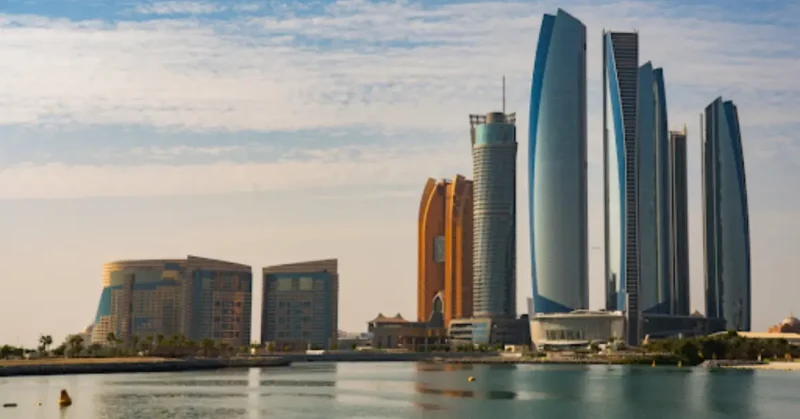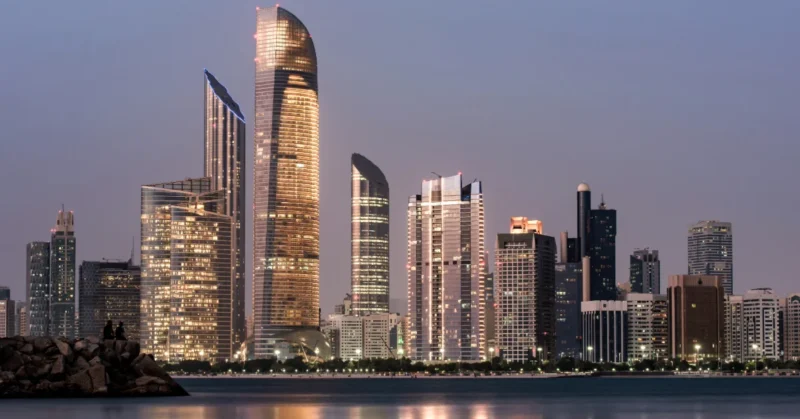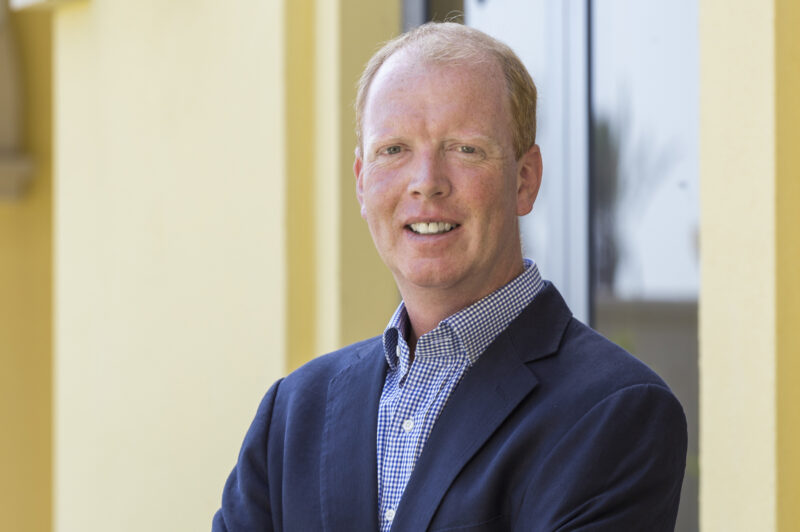Abu Dhabi is entering a new chapter in its real estate story. Once known for its relaxed atmosphere alongside Dubai’s vibrant energy, the capital is now drawing global attention for its lifestyle, stability and long-term investment potential. From business setting up in Abu Dhabi’s international financial centre, ADGM, to families looking for privacy, space and strong returns, Abu Dhabi is turning into a city where people can enjoy their life and feel confident about their investments.
As part of Property Finder’s Expert Insights series, we spoke with Andrew Covill, Director at Henry Wiltshire International, to understand why investor sentiment is shifting, which areas are leading demand, and how new buyers can approach the market with clarity.
Read on to discover the forces shaping Abu Dhabi’s rise as one of the region’s most compelling investment hubs.

What key factors are driving Abu Dhabi’s growing appeal as a real estate investment destination?
For Andrew, the most significant shift is simple. The capital has emerged as a compelling destination, with investors from around the world recognising its value and momentum.
Over the last eighteen months, Abu Dhabi hasn’t just begun attracting hedge funds, family offices, and investment banks; rather, it has seen a significant acceleration in new interest and arrivals. Many of these firms are now establishing headquarters in ADGM, bringing in principals and senior teams seeking premium homes, well-planned communities, and a stable base for their families.
Lifestyle has caught up, too. The city now offers high-quality hotels, restaurants, beaches, and golf courses without the congestion that often accompanies rapid urban expansion. It balances comfort and calm, making it an attractive long-term home for residents who want space and harmony.
Driving this growth is a rising population supported by key sectors such as aviation, healthcare, and education, alongside strong fundamentals like attractive rental yields and steady capital appreciation. For many investors, these factors signal a market with strong foundations and long-term credibility.
How have government initiatives such as long-term visas and ownership reforms influenced investor confidence in Abu Dhabi?
One of the strongest drivers of investor confidence is the improvement in transparency and regulation.
Andrew highlights the advancements made by the Abu Dhabi Real Estate Centre(ADREC), which has streamlined transfers and introduced more transparent processes that give both local and international buyers peace of mind. New systems, such as Madhmoun for advertising permits, broker contracts, and improved data publication, have also reinforced market clarity. The forthcoming broker contracts will introduce a more structured process, where buyers and sellers will formally engage the brokerage through contractual agreements that outline responsibilities and associated fees.
The freehold ownership framework has widened access for foreign buyers, while residency reforms, such as the Golden Visa, offer long-term stability for those seeking a base in the region. Many of Henry Wiltshire International’s clients now use Abu Dhabi as a winter home or central hub because of its favourable taxation and global connectivity.
Collectively, these reforms create a system that feels safe, professional and built for sustainable growth.
Which areas or property segments currently offer the strongest opportunities for investors, and why?
According to Andrew, the best investment strategy begins with the buyer’s goals, not the newest launch.
Off-plan properties continue to attract significant interest, especially those from major developers with an international reputation. These offer flexible payment structures and strong long-term potential, although they require buyers to be comfortable with future payments.
For others, ready-to-move-in properties remain a smart option. They allow buyers to secure mortgages, generate rental income immediately and benefit from established communities with proven demand.
When it comes to areas, beachfront locations have seen the fastest appreciation, yet still appear affordable when compared to global coastal markets. Communities along Al Raha Beach continue to outperform due to strong demand and mature infrastructure, while more affordable areas, such as Al Reef, have delivered impressive yields and capital gains for investors priced out of premium locations.
Looking ahead, Andrew sees strong promise in Yas Island, Raha Beach, Jubail Island and Hudayriyat Island. Jubail is still in development, with retail and community amenities set to arrive soon. At the same time, Hudayriyat marks a significant new chapter, introducing a fresh freehold district in an area that has traditionally been reserved for nationals.

How do you expect Abu Dhabi’s property market to evolve over the next few years?
The capital is witnessing a balanced growth phase where both the luxury and affordable ends of the market are rising in tandem.
The most pressing issue is the supply of villas. There is a significant shortage today, and while many villas are under construction, Andrew believes they will be absorbed quickly by incoming residents and relocating professionals. Infrastructure improvements will also shape the next phase of development. Planned transport connections, such as the Etihad rail and other transport links, including a tram link between Yas Island, the airport, and Raha Beach, will support established communities and encourage renewed interest in them.
Younger professionals and families are increasingly choosing Abu Dhabi for its spacious homes, stability and relaxed pace of life. Many continue to work in Dubai while living in the capital, and long-term transportation plans, such as the Etihad Rail, may accelerate this trend further.
Finally, what advice would you offer to new or first-time investors considering entering the Abu Dhabi real estate market?
Andrew’s guidance for new investors is practical and clear: seek proper advice, stay within your budget, and choose reputable developers.
Buyers should start by understanding whether they prefer a ready home or an off-plan project, as each requires a different financial approach. Those purchasing off-plan properties need to be fully prepared to follow the payment schedule, rather than relying on flipping the property midway through.
For ready homes, buyers should confirm their mortgage eligibility early and work with a licensed agent who can offer reliable financing referrals.
Andrew emphasises the importance of purchasing only from developers with escrow accounts and a proven track record of credibility. Since lawyers are not typically involved in Abu Dhabi transactions, the agent plays a key role in managing paperwork and ensuring the buyer’s interests are protected.
A professional agent should also disclose upcoming developments, infrastructure plans and any potential environmental or zoning changes that may affect long-term value.
The Bottom Line
Abu Dhabi is entering a new phase of global relevance. Its strong governance, high quality of life, and forward-looking development have created a real estate landscape that appeals to both investors and residents, offering long-term value.
Whether through off-plan opportunities, developed communities or emerging districts, the capital offers a broad range of pathways for those looking to build wealth with confidence.
As Andrew explains, the key to success lies in informed decision-making, credible advice and choosing the right property for your goals. With these foundations in place, Abu Dhabi stands as one of the region’s most promising markets for sustained growth and investment.

Andrew Covill
Director at Henry Wiltshire International
Andrew brings over 35 years of international property experience across development, investment, and real estate agency. Based in Abu Dhabi since 2008, he has become a recognised figure in the local market, building strong relationships with leading corporations, institutions, and high-profile individuals.
At Henry Wiltshire International, Andrew leads the firm’s growth in Abu Dhabi, driving brand positioning and market expansion. He manages daily operations and long-term strategy while guiding corporate clients, institutional investors, and high-net-worth individuals through premium property transactions.